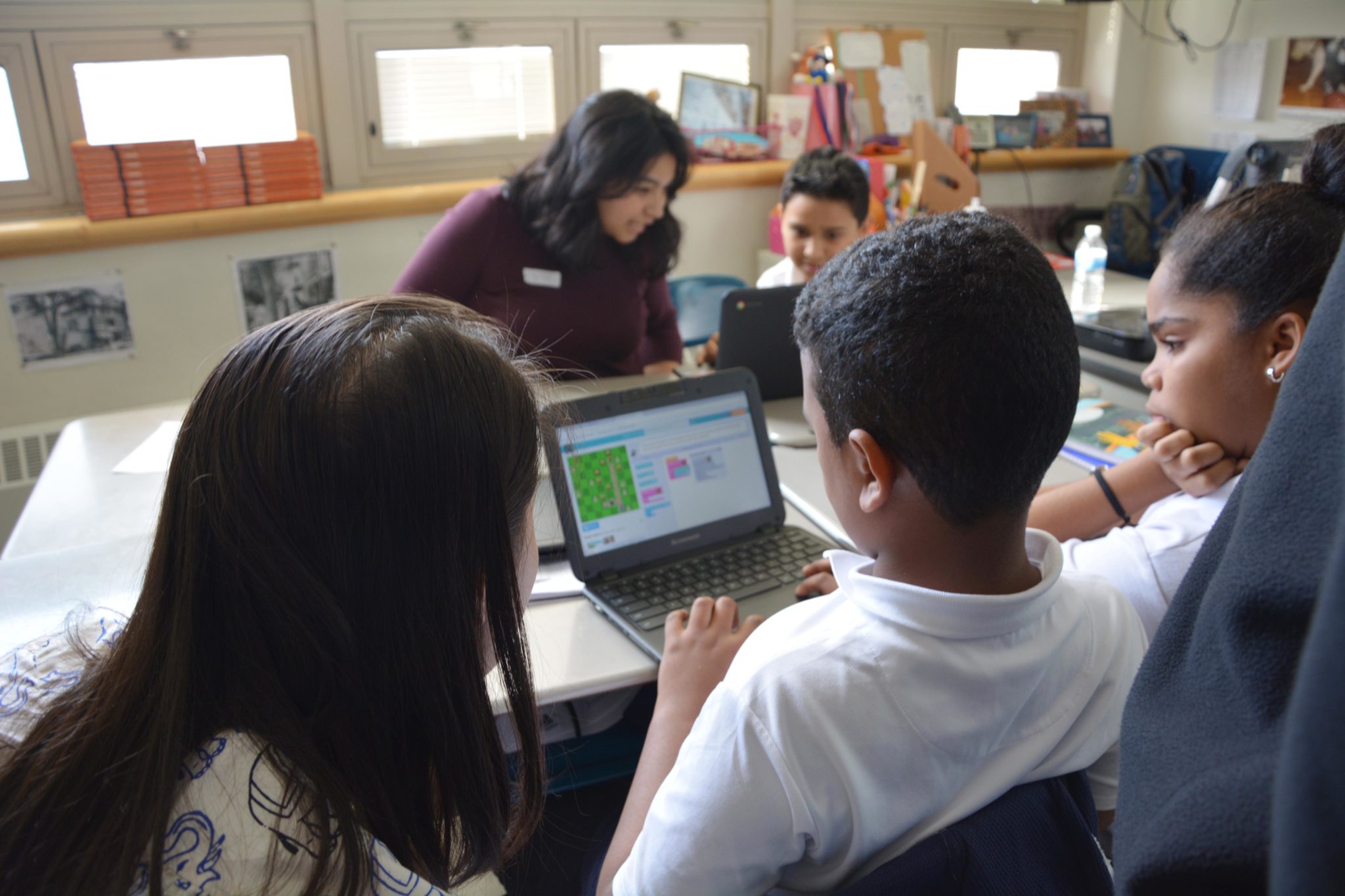
Code Haven, an organization that brings Yale students to local New Haven schools for weekly coding lessons, has been awarded $6,000 by Google’s IgniteCS program.
According to its website, Google’s IgniteCS is a computer science education program aimed at making young students passionate about computer science. The program provides funding and resources for college students to impact their local communities through computer science mentorship.
The idea for Code Haven began when David Weinreb, a bilingual middle school teacher at New Haven’s Fair Haven School, met Nathaniel Granor ’09 at the 2016 Education Leadership Conference at the School of Management this past April, according to Weinreb. Granor works at Microsoft as a Lead Program Manager for TEALS, a Microsoft philanthropic project that aims to bring computer science education to every high school in America.
However, Weinreb, who says it is “important to be providing a lot of STEM access and opportunities to my students,” said that he wanted to bring this idea to the middle school level.
“I came to coding because I thought it was an essential skill that my students could be taking on, but what I now understand is that it’s also a secret to building language proficiency, with a very specific set of vocabulary,” Weinreb said. “To provide the third language of technology is an essential advantage that [my students] must have in order to be competitive, and for me, this is one of the ways that the classroom is providing that kind of access to my students.”
Granor, who studied computer science at Yale, connected with Dana Angluin, a professor in the department of Computer Science. Angluin then reached out to Annie Chen ’19, who along with her co-founder Dennis Duan ’19, started Code Haven. According to Weinreb, the program started in September with its first cohort of trainees, the middle school students, and mentors — Yale undergraduates. This semester, 16 Yale undergraduates participated in Code Haven as mentors, Duan said.
“We are dedicated to introducing students to computer science starting at a young age,” Chen said. “Every week, Yale students teach computing lessons at Fair Haven School, engaging the students with online lessons, group activities, and class-wide demonstrations.”
Weinreb said that as a bilingual teacher, all of his students are English language learners, and many are recent immigrants from Spanish-speaking countries, such as the Dominican Republic and Mexico.
Duan said that although the language barrier was difficult to initially overcome, the program was exciting because he saw his students learn not only computer science but also English. He said that he and his mentors have been “forced to refine their explanation and communication skills” and to express computer science concepts through body gestures.
Duan added that Alejandra Corona Ortega ’19, a public schools intern at Fair Haven School, also acts as an interpreter for the program. Ortega translates when the mentors lead lessons to the entire class, although some mentors speak Spanish.
“I see this as a tremendous opportunity to not just learn about coding and programming, but also additionally, that students have access to a range of interesting mentors with different backgrounds and cultures who have different kinds of experiences,” Weinreb said.
According to Duan, the Google IgniteCS funding will allow Code Haven to purchase a set of Chromebook laptops for classrooms that do not already have computers. Additionally, the funding will cover the cost of managerial and logistical costs, such as transportation and materials needed for demonstrations.
Code Haven currently uses a curriculum provided by Code.org, a nonprofit dedicated to expanding access to computer science to underrepresented minorities and women. Chen and Duan, however, have been also supplementing this with their own lesson plan, they said.
Chen said that although the Code.org curriculum is a good starting point in teaching children to code because it uses puzzle pieces rather than a text-based language, it moves in a direction “orthogonal” to the goals of the program.
Chen added that moving forward, the team wants its students to learn a text-based programming language. The team will also be starting at another classroom in Fair Haven, according to Chen.
“I think a challenge for [Code Haven] is a challenge we see more broadly: wouldn’t it be wonderful it there were more Spanish-speaking undergraduates who are studying computer science?” Weinreb said. “But that’s a challenge for us as a city and a challenge for me, too. For our sixth graders, we hope as they enter college they see computer science as a viable profession and a field they know a lot about.”
The Fair Haven School is located at 164 Grand Ave. in New Haven.
Correction, Dec. 6: An earlier version of this story misclassified Puerto Rico as a country when in fact it is an unincorporated U.S. territory.







